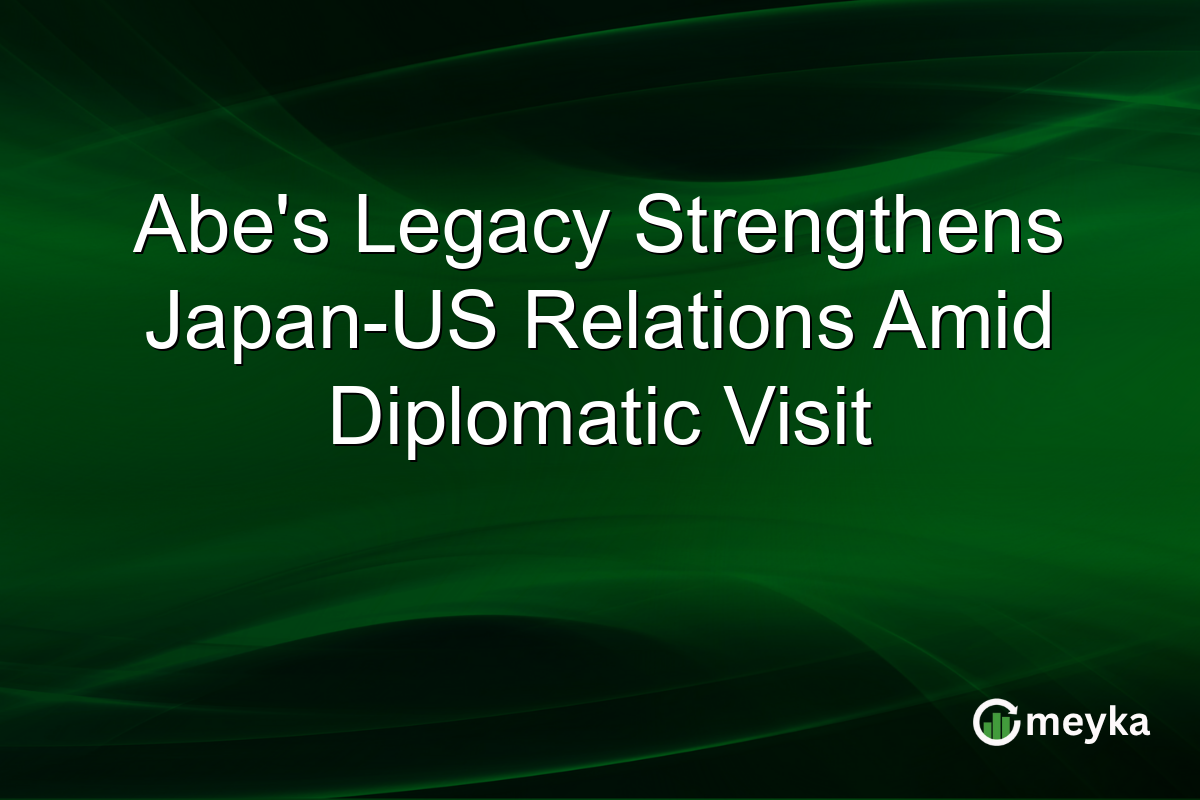Abe’s Legacy Strengthens Japan-US Relations Amid Diplomatic Visit
Abe Shinzo’s legacy in strengthening Japan-US relations remains significant even after his passing. Recently, during a diplomatic visit, Abe’s widow met with former US President Trump, symbolizing ongoing efforts to bolster ties between the two nations. This meeting underscores the enduring impact of Abe’s diplomatic initiatives, promoting peace and cultural exchange. Abe’s vision has left an indelible mark on Japan-US relations, highlighting the importance of these ties in global diplomacy.
Abe Shinzo’s Diplomatic Vision
Abe Shinzo, Japan’s longest-serving Prime Minister, was pivotal in reinforcing Japan-US relations. His focus on security cooperation and economic partnership laid a strong foundation for future diplomacy. Under his leadership, Japan enhanced its defensive capabilities, aligning closely with US military strategies. This approach not only fortified national security but also fostered trust among the two nations. Abe’s legacy is a cornerstone of Japan’s foreign policy vision today, ensuring that the relationship remains robust and mutually beneficial.
Recent Diplomatic Visit Highlights
The recent meeting between Abe’s widow and Donald Trump during her diplomatic visit highlighted the ongoing cultural and diplomatic engagements. This gathering served as a reminder of the personal and political connections fostered during Abe’s tenure. Mrs. Abe’s gesture of gifting a painting illustrated the cultural aspect of diplomacy, emphasizing peace and continued friendship. This event shows that Abe’s influence persists in strengthening bilateral ties through an amalgamation of tradition and diplomacy. For more on this story, visit this page.
Cultural Exchange and Peace Promotion
Abe Shinzo’s approach to diplomacy heavily emphasized cultural exchange as a tool for peace. By nurturing human connections, Japan has sought to build stronger international relations. These efforts highlighted how cultural understanding can defuse tensions and promote mutual respect. Abe’s initiatives in this area continue to facilitate dialogue and understanding between Japan and the US. The recent diplomatic visit further emphasized these elements, stressing the importance of cultural diplomacy in maintaining peaceful international relationships.
Future of Japan-US Relations
Japan-US relations are positioned for continued growth and cooperation. As both nations face common global challenges, such as security threats and economic fluctuations, their partnership remains crucial. The legacy of Abe Shinzo will continue to guide future policies, ensuring that both nations benefit from shared goals and values. This enduring relationship not only influences the Asia-Pacific region but also contributes to global stability and peace.
Final Thoughts
Abe Shinzo’s legacy in Japan-US relations is profound and ongoing. His efforts in building strong diplomatic ties and fostering cultural exchanges continue to resonate. As global dynamics shift, the foundation Abe established ensures that Japan and the US remain key allies. Diplomatic visits and cultural gestures underline the enduring impact of his work. Looking forward, the principles laid out during his tenure will guide Japan’s foreign policy, promoting peace and cooperation between these two powerful nations.
FAQs
Abe Shinzo reinforced Japan-US relations by enhancing security cooperation and economic partnerships. His policies aligned Japan more closely with US strategies, ensuring robust bilateral ties and mutual security.
The visit, featuring Abe’s widow and Donald Trump, highlighted ongoing diplomatic efforts and cultural exchanges. It underscored Abe’s enduring influence on Japan-US relations and stressed the importance of peace and tradition.
Cultural exchange fosters understanding and defuses tensions, promoting peace. Abe emphasized these exchanges to build stronger international relationships, which continue to benefit Japan-US diplomacy today.
Disclaimer:
This is for information only, not financial advice. Always do your research.






